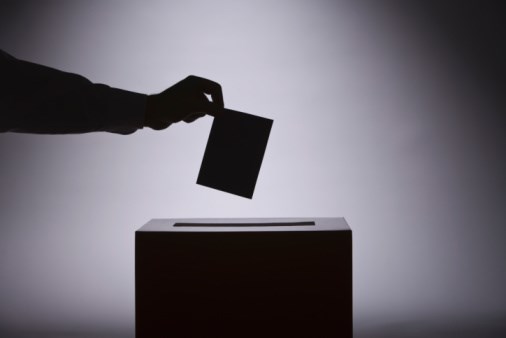Want to know who’s not Canadian enough to vote in the federal election?
Try Victoria-born David Foster.
Or Victoria-raised Steve Nash.
Anyone, in fact, who hasn’t lived in Canada for the past five years.
Never mind that 16-time Grammy winner Foster is an officer of the Order of Canada and a member of the Order of B.C., that an entire stretch of Victoria waterfront is named in his honour, that he’s in the Canadian Music Hall of Fame, that he has an honorary doctorate from the University of Victoria, that he once talked about coming home to run for provincial politics, or that for the past 27 years he has poured himself into a Victoria-based charity that has helped close to 1,000 families of children who need major organ transplants.
Never mind that Nash also belongs to the Order of Canada and Order of B.C., also has an honorary doctorate from UVic, that he is general manager of Canada’s national men’s basketball team, that he captained Canada at the Sydney Olympics, that he drives the Steve Nash Foundation children’s charity, or that he sponsors B.C.’s Steve Nash Youth Basketball League.
Nope, not Canadian enough for the Canadian government. If the Great White isn’t your regular place of residence, you can’t cast a ballot.
This goes back to a 1993 law denying the vote to anyone who had lived out of the country for five years or more.
At first, the ban largely existed in theory, as expats could reset the clock to zero every time they came back for a visit.
But then the feds clamped down in 2007, eliminating the reset-the-clock bit. That led to a court challenge in which an Ontario judge threw out the five-year rule — a decision that was itself tossed out on appeal this July.
“Permitting all non-resident citizens to vote would allow them to participate in making laws that affect Canadian residents on a daily basis but have little to no practical consequence for their own daily lives,” the appeal decision stated.
Actor Donald Sutherland, who lives in Los Angeles but carries only a Canadian passport, was among those incensed by the decision. The Governor General’s Award recipient let fly in a July 28 Globe and Mail opinion piece in which he questioned the Conservatives’ motives in shutting out expats: “Is it because they’re afraid we’ll vote to return to a government that will once again represent the values that the rest of the world looked up to us for?” (Let’s not forget that Sutherland was once married to the daughter of New Democrat icon Tommy Douglas.)
Sutherland pointed out that U.S. citizens living in Canada have no such restrictions. Note that the Victoria-based chapter of Democrats Abroad signed up several hundred Vancouver Islanders to back Barack Obama’s presidential run.
Down in Louisiana, Liam McDermott — better known as Liam Lux in the years he managed Lucky Bar and DJed around Victoria — is aghast. He has run a New Orleans club called One Eyed Jacks for the past 11Ú2 years, but is invested in the Canadian political process and plans to return here some day.
McDermott recoils at the notion of a government taking away the right to vote, or, for that matter, revoking citizenship in the manner of Bill C-51. He can’t believe Canadians have allowed Stephen Harper to do this. “Does he know what country he’s running?” Say what you will about Americans, but they treat fundamental individual rights as sacrosanct. “These are rules they would never dream of passing in the U.S.,” he says.
The logic behind the vote-stripping goes like this: You shouldn’t get to vote if the actions of government don’t affect you, if you’re not paying taxes and if you don’t live in the jurisdiction. The counter-argument says many expats do still own and pay taxes on property here, and that in any case residency shouldn’t be confused with citizenship; we live in B.C. but are citizens of Canada, no matter where we are.
In terms of real impact, this is a largely irrelevant issue. Of the more than one million Canadians living abroad, only 6,069 had their votes counted in the 2011 general election. For most expats, taking away their right to vote is like stripping them of their right to eat worms; it’s not like they intended to do so anyway.
That’s of little comfort to those who do want to cast a ballot, though, or who think we should be encouraging — not discouraging — voting, or who think it’s just plain wrong that politicians we hold in low esteem should take away the rights of Canadians we admire.
“Wayne Gretzky can’t vote? That would be like killing an eagle down here,” McDermott says.



